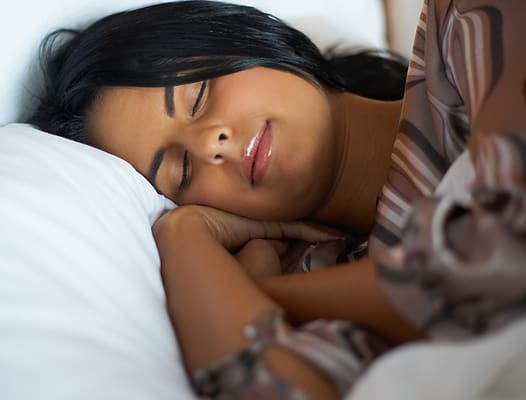My Blog
Reclaim Your Sleep

Reclaim Your Right to Sleep through Acupuncture
By Jill Ellen Smith
For the Howard County Women’s Journal – December 2007
The balm of the night. Heaven’s kiss. An infant’s lullaby. The soothing salve of the day… to drift off into a peaceful sleep.
Not so for everyone. For some people bedtime is ridden with the anxiety of facing another night of fitful tossing and turning, or worse… just lying there watching the clock tick its way to another day of work and responsibilities… exhausted.
Sleep. It is the ‘Yinnest’ time of the day. The time of the 24-hour cycle where we have been programmed to become horizontal, close our eyes and enter into stillness so our bodies and minds can rejuvenate themselves.
I would say that nearly 75% of the patients who find their way into my treatment room are suffering from some degree of sleep disruption. The sleep problem hasn’t been the chief complaint that brought them into acupuncture. For most it is a by-product of some other imbalance. Whether their chief complaint is pain, gastrointestinal, mood, or a skin issue, the sleep shows up as disrupted in a variety of ways.
The disruption can be related to an inability to fall asleep. If it takes longer than 20-30 minutes to fall asleep, then this is a sign of an imbalance. For others, falling asleep is not the issue, but staying asleep is. Many people find themselves awakening in the middle of the night for no apparent reason. Some may awaken and fall back to sleep with ease, only to awaken again, and again. Others may awaken and then find it impossible to fall back to sleep. Either way… the disruption breaks the cycle of the sleep pattern, and a person is robbed of the feeling that comes with the restoration that nature intended.
According to Chinese Medicine, a sleep disruption can come from a variety of places. Two of the most common are from a deficiency in Blood and/or Yin. (Remember that when an acupuncturist refers to Blood we are addressing a broader concept than simply that red liquid Westerners refer to as blood. From an Eastern perspective a person can be Blood deficient while Western lab values will not reflect any anemia or other deficiency.) This is why it is important for your acupuncturist to fully evaluate you before a diagnosis and treatment plan can be established. We need to understand the source of the sleep disruption.
If, for example, the sleep issue is determined to be a ‘Blood deficient’ type, then we need to search deeper for the source of the deficiency so we can know on what level to treat. There are three primary Meridians (or Officials as we also call them) that are responsible for the formation and health of the Blood. An imbalance in any one of them can also contribute to an imbalance in the others. Remember, a Chinese medicine practitioner is always looking for the source of the disorder. This is what makes this type of medicine so powerful. We call it the ‘Root/Branch’ phenomenon. In this case, the sleep disorder would be the branch, while the root would be the Blood (and more specifically, the Meridian that is imbalanced).
If the sleep disorder is more of a Yin deficient type, then we work to build Yin. We do this by treating certain Meridians and pathways as well. In all cases we always seek to establish a connection between a person’s lifestyle and their sleep disorder. Such important pieces of information would pertain to diet, activity level, daily schedule, external stressors in their life and how they normally cope with them, or exercise. Making alterations in ones’ lifestyle is the most powerful compliment to acupuncture treatment. I like to remind my patients that their participation in altering lifestyle in ways that serve them only enhance the power of the acupuncture process. We need to create the proper environment to enhance our sleep.
A large number of my patients are women with menopausal issues and with a sleep disorder that is all too common with this life passage. As we work to correct the overall imbalance that is leading to the menopausal problems, the sleep begins to respond and the patient begins to finally experience nights of uninterrupted sleep. (See Women’s Journal article on acupuncture and menopause.)
Pain is also a partner to sleep disorders. Which symptoms show up first is not necessarily the source of the problem either. Remember that the source may be an imbalance on a number of possible levels. Your acupuncturist’s skill in identifying the root(s) is the key to supporting your return to balance.
I can comfortably report that sleep is one of the primary and key symptoms that I can track to determine my patient’s progress. And the good news is that it is usually one of the first symptoms to respond to acupuncture treatment.
Remember, sleep is a gift that nature intends for us to enjoy for the health of the rest of our body, mind, and spirit.
Testimonial
Before meeting Jill, I thought acupuncture was all about the needles. I know now that acupuncture and eastern medicine involve much more of a physical and mental connection. I now have more energy, feel more positive, and my health is improving with each visit. Jill’s interest in knowing me as a person and not just as a patient has made the world of difference. I highly recommend her.
Danielle Z.
Visit my website at http://www.Batimore-Acupuncture.net
